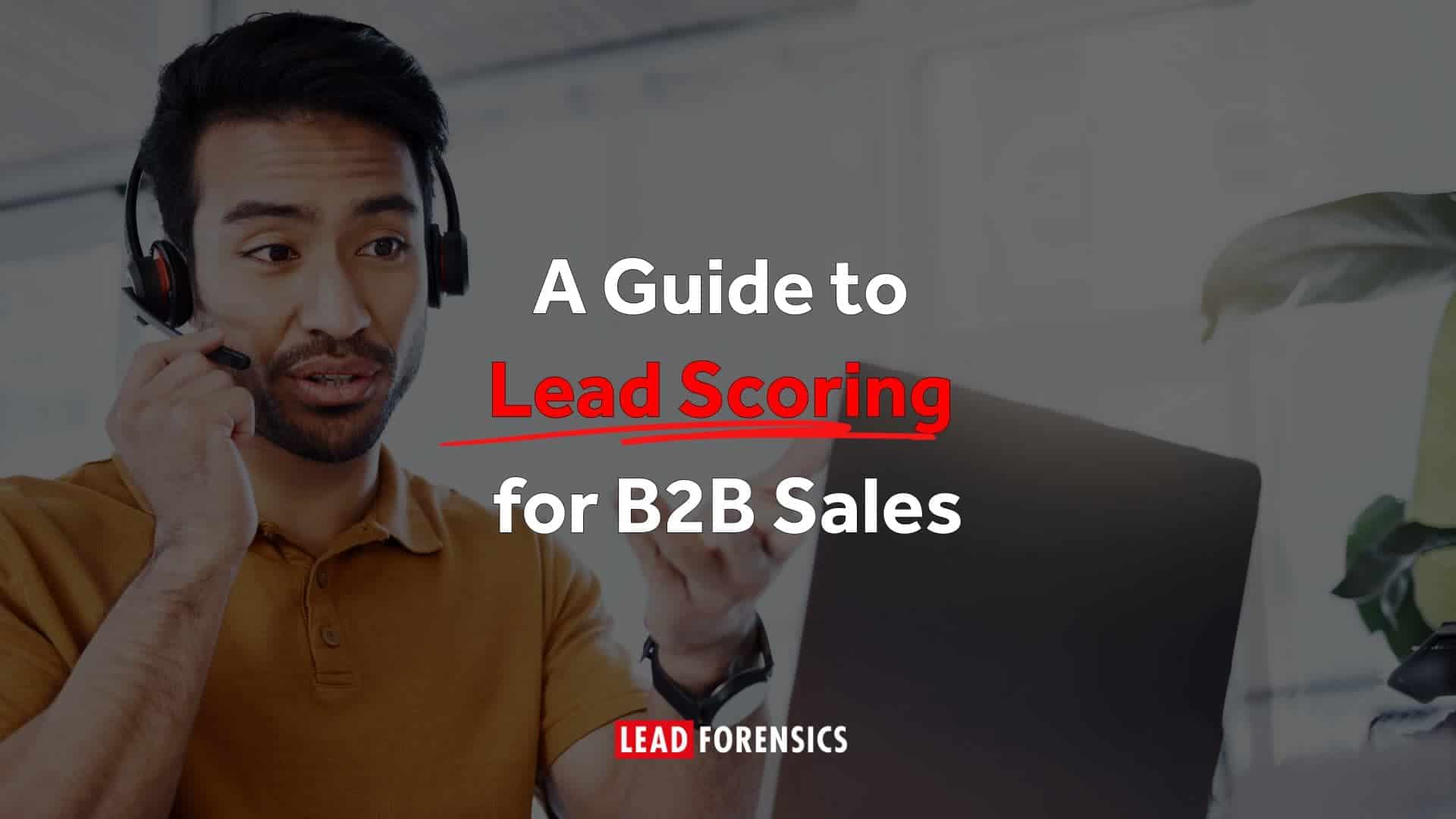What is Lead Scoring?
Lead scoring is a methodology used by B2B sales and marketing teams to evaluate leads and understand which ones are most likely to convert.
Lead scoring works by assigning a value to each potential lead based on certain attributes and behaviors they exhibit. Sometimes the scores are numerical, but it can be as simple as dividing leads into hot, warm or cold groups.
Why is Lead Scoring Important?
Lead scoring is important for both sales and marketing teams.
If you can identify your warm leads, you can work out where to focus your energy and who to target in order to close more sales.
But there are many more reasons why lead scoring is important:
- Consistent scoring criteria lets you evaluate leads fairly. This brings the sales and marketing teams together to create consensus on what a qualified lead is and align goals.
- Understanding your leads allows you to personalize your communication. How you approach cold calls should be very different from your warm calling strategy, and lead scoring helps you work out which prospects require which script.
- Evaluating performance by lead quality helps you understand which activities are most effective and review the areas that need to be reconsidered.
- Focusing on the most valuable leads can help improve your return on investment (ROI) and shorten the sales cycle, because you’re chasing the contacts who are most likely to convert. This means quicker revenue generation for your business.
How Do Companies Score Leads?
There are a few different ways that the lead scoring process can work.
Explicit vs Implicit Data
Over half of companies that score leads use a combination of explicit and implicit data, according to a survey by Databox. This means they look at information shared directly with you (explicit) as well as information you can find about their behavior, such as website pages viewed or email clicks (implicit).
The same survey found that a third of businesses (32.61%) prioritize implicit lead scoring, while just 15.22% focus on explicit criteria.
Engagement Frequency Data is Most Important
Almost 75% of businesses said engagement frequency was their top criteria for lead scoring.
The other data points that at least half of respondents say they use for lead scoring are:
- Lead source
- Company industry
- Company size
- Budget
- Pages visited
How To Score B2B Leads
When you create your own lead scoring system, you need to think about the factors that are most relevant for you and how to assign values to each point.
You might find it easiest to use a score from one to five and give the highest points to the leads that most closely align with your ideal customer profile.
For more complex lead scoring systems, you can weigh the points according to how important they are. For example, you could score a lead’s job role out of 15 or give them up to 10 points for viewing a specific landing page but only assign up to five points for their social media usage or email marketing engagement.
Lead Scoring Data to Consider
There’s no shortage of data available, but it’s important you focus on the points that are most relevant to your business.
Firmographic Data
Company-level insights will help you qualify your leads and score them against your criteria. The kinds of information you might find most helpful include:
- Company size. Knowing whether you’re dealing with a solo entrepreneur, a large enterprise or something in between is important.
- This detail will help you understand how relevant the lead is and if they’re from a high-converting sector.
Demographic Data
Understanding more about the person behind the prospective company can also help you with lead scoring. It’s often helpful to understand:
- Job title. Is the contact the decision maker or an influencer?
- Are they based in the head office or somewhere else?
- How familiar are they with your industry and solution?
Engagement Level
Engagement criteria reflect how actively the lead interacts with your brand. These interactions indicate their interest and readiness to move through the sales funnel.
Key engagement criteria that can indicate a higher level of interest in your company include:
- Website visits. Do they visit your website often?
- Channel source: How do they find your website? For example, did they click on a PPC advert, a LinkedIn post, or email?
- Email interactions. Do they open, click and respond to your emails?
- Social media engagement. Do they like, share and comment on your posts? What kinds of things do they share on social media?
- Event participation. Have they attended any webinars, workshops, or conferences?
Buying Signals
There are a range of signals you can use to understand buyer intent and get a better insight into whether your lead might be ready to purchase.
Some important high-intent buying signals include:
- Content downloads. Did they look at your bottom-of-funnel whitepaper?
- Demo request. Have they expressed interest in seeing how your tool works?
- Free trial sign-up. Did they register for a free trial to test your product firsthand?
Other Potential Data Points to Consider
Other insights to consider include:
- Do you know what their budget is, and does it align with your pricing?
- How quickly do they need a solution?
- Is there anything to suggest that the lead needs an urgent resolution?
Lead Scoring Software Will Do This For You
There’s an overwhelming amount of data waiting for you to review – but many popular customer relationship management (CRM) tools will score your leads for you.
For example, HubSpot lets you set up custom lead scores based on data that you decide and Salesforce has its own Einstein Lead Scoring functionality that blends data science and machine learning to predict which leads to prioritize.
How Can You Make Lead Scoring More Powerful?
When you integrate your CRM with website visitor identification software, you’ll tap into a whole new level of insight that can transform how you score your leads.
Tools like Lead Forensics can tell you which companies are engaging with your website before they even reach your CRM.
You can find out things like company name, industry, number of employees and location without a prospect needing to complete a form on your site. Lead Forensics will also tell you when that company visited your website, how they found your site, and what they did on your website, so you can build a much more insightful view of your leads.
Book a demo now to see how you can uncover a wealth of additional data about the companies visiting your website.









